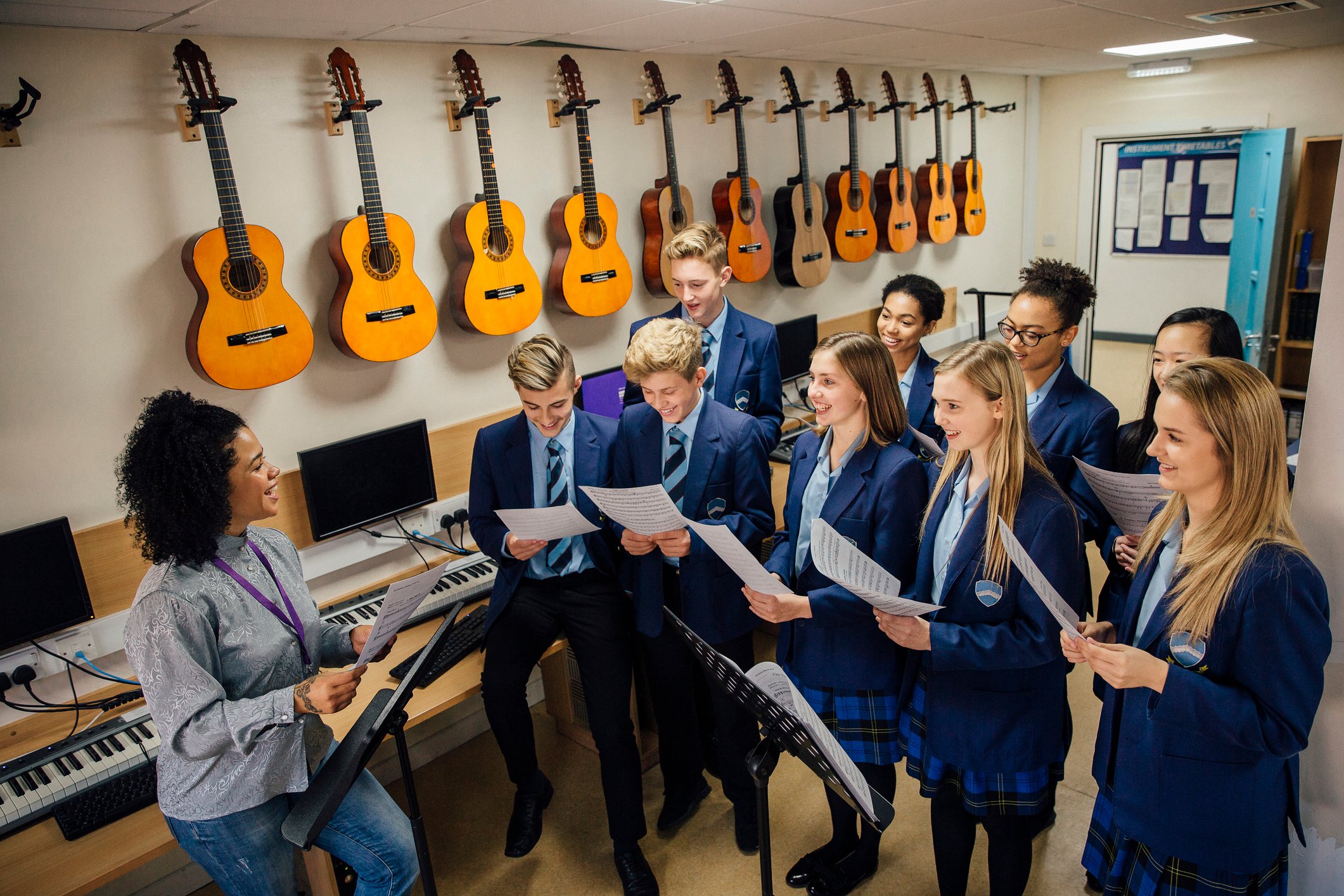
Photo: DGLimages/iStock
Privately educated pupils still outperform peers in creative GCSEs
New research finds pupils in fee-paying schools continue to perform better in creative arts GCSEs than those at state schools, despite the attainment gap closing in other subjects.
Private school pupils in England continue to achieve better GCSE results than their state school counterparts in art, drama and music, despite a narrowing of the gap in other subjects, according to new research.
The study, conducted by researchers at University College London, used longitudinal data from the UK Millennium Cohort Study to track information on family income, parental occupation status, home ownership, gender, ethnicity and geography, along with GCSE performance in 2016/17.
It found the attainment gap at GCSE level between pupils who attend fee-paying schools and their state school peers has closed in English, maths and science, once results are adjusted to consider socioeconomic backgrounds.
In GCSE English, private school pupils outperformed state school pupils by just over a third of a grade on average before adjustment, but after socioeconomic status was considered, state school pupils performed better by just under a fifth of a grade on average.
There was no statistically significant difference in GCSE science and maths attainment before adjustment, the research paper says, but after adjustment, state school pupils scored on average two-thirds of a grade higher in maths and two-fifths of a grade higher in science.
However in the creative arts subjects, including art and design, drama/theatre studies and music, private school pupils were found to be performing better than their peers by almost one and a third grades on average before adjustment.
Once adjusted for socioeconomic background, private school pupils still outperformed state school pupils by just over half a grade.
Government ‘must address tissue’
In the study, the researchers say private school pupils outperforming their peers in non-core subjects “arguably reflects a wider curriculum and greater available resourcing for these subjects” at private schools.
The research paper adds that the attainment gap has the potential to “perpetuate, or worsen, the domination of creative sectors by those from high socioeconomic status backgrounds”.
“Over the last two decades state schools have increased their focus on the core subjects to deliver results, which is reflected here,” explained lead author professor Jake Anders.
“Private schools also have the resources to expose pupils to a rich variety of cultural experiences, which could go some way to explain why they produce stronger results in the creative subjects.”
Julie McCulloch, director of policy at the Association of School and College Leaders, told the Guardian that while state schools strive to deliver high-quality arts subjects “they are affected by the relative shortage of funding and it is increasingly difficult to deliver some of these subjects within the existing financial constraints”.
“The new government must address this issue,” McCulloch added.
The Labour government has publicly pledged to boost creative education opportunities.
Originally a pre-election promise, the Labour party’s manifesto said arts and music will “no longer be the preserve of a privileged few” and featured plans to support all children to study creative subjects up to the age of 16.
In July, the government launched an independent review into the school curriculum. A call for evidence to support the consultation ended last Friday (22 November), with a set of recommendations on curriculum reform set to be published next year.
Join the Discussion
You must be logged in to post a comment.